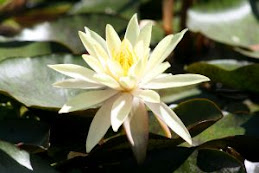Saturday, June 13, 2009
Hay fever and Energy
Sneezing?
Runny nose?
Itchy eyes?
Spring is the time of year for allergic rhinitis, also known as hay fever.
This is caused by an allergic reaction to pollen floating through the air.
The common understanding is that this is caused by a disorder in the immune system.
According to Chinese medicine :
“It's caused by the weakness of "defense qi," which is defense energy.”
There is a remarkable similarity in these two understandings, if the function of defense qi in Chinese medicine can be likened to the function of the immune system.
There are different kinds of qi.
In treating hay fever, a Chinese medicine practitioner will tonify the defense qi with herbal medicine and unblock the nose through acupuncture.
According to Chinese medicine what causes defense qi to be lower in the first place is firstly, it's improper diet because … the [source] of energy comes from nutrition.
This can be understood in the same way that power is needed to operate anything. Just like power, our power is from the food we eat—and sleeping.
Chinese medicine understands that different foods have different “temperatures”, which is different from the understanding of nutritional content in Western medicine.
Foods may range from hot to cold to neutral. Different foods have different effects on the body, depending on their “temperature.”
The idea is to restore balance to the body.
Thus, if an illness is said to be “cold” ,such as a cough or runny nose, “warmer” foods should be taken, such as ginger and shallot soup.
Conversely, if an illness is “hot”, such as a dry, sore throat and sweating, “cooler” food should be taken, such as a banana, cucumber, and tofu.
Impaired digestion can also lower defense qi.
People with absorption problems would find that their energy is lower because poor absorption of food means that food cannot be broken down adequately to provide energy.
Treatments are tailored to the patients, who are diagnosed by recording the symptoms, and every detail needed to be known, including the sweating conditions or energy level, tiredness or digestive function.
Herbs are thus prescribed according to multiple factors.
There are hundreds of different kinds of herbs, and any one prescription may be a combination of up to 10 different kinds.
Chinese herbal medicines, including bupleurum, Chinese skullcap, ginger, licorice, and ginseng, have a history of use in China and Japan for the treatment of hay fever. Other products may contain magnolia derivatives.
Chinese herbal remedies have been used to combat hay fever and other allergies for centuries.
Studies on the efficacy of herbal and acupuncture treatments of Chinese medicine in treating hay fever have been published in medical journals.
A German study published in the journal Allergy found that hay fever sufferers who received weekly acupuncture treatments and took three daily doses of Chinese medicinal herbs showed fewer symptoms and were less likely to say their hay fever was infringing on their daily activities than people who received placebo treatment.
After six weeks, it was found that 85 percent of patients showed overall improvements in their hay fever, compared with only 40 percent of the placebo group.
Usually, patients tend to see the difference, sometimes after one session, sometimes after a week.
Subscribe to:
Post Comments (Atom)




No comments:
Post a Comment